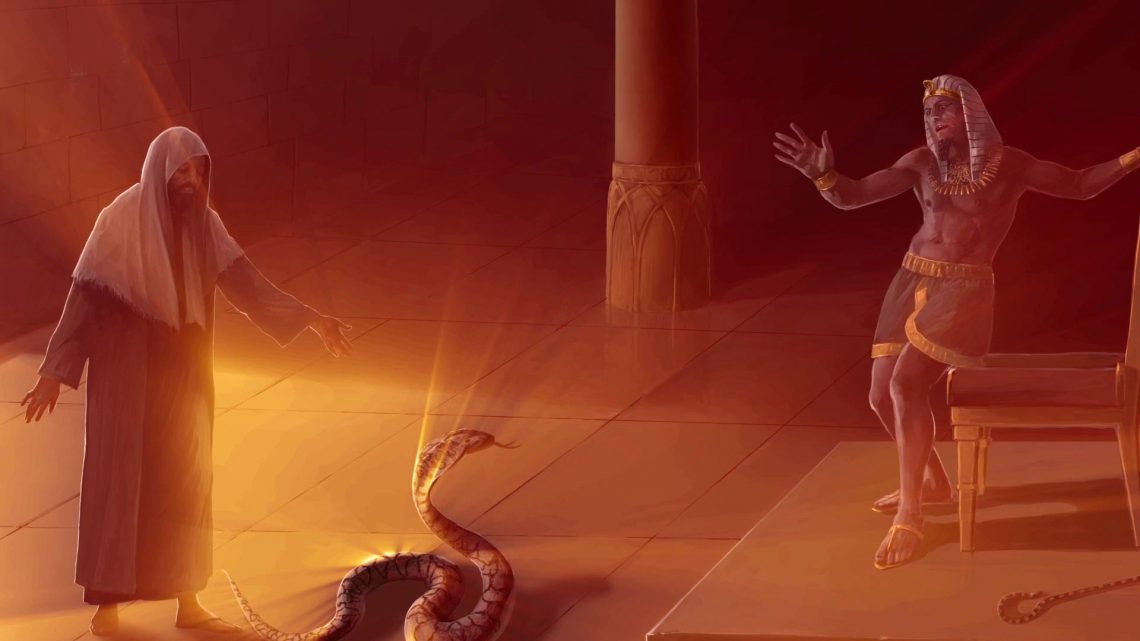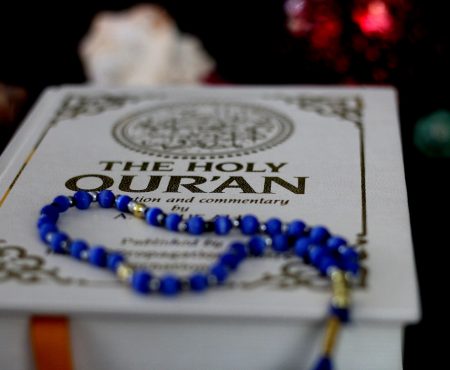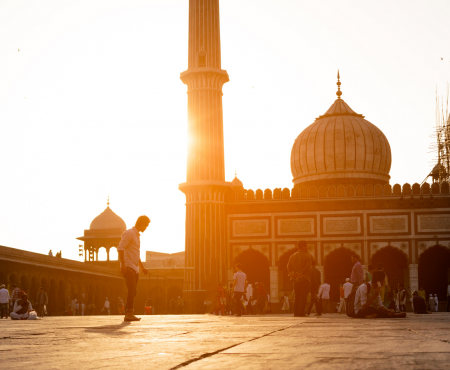Who is Moses in Islam ? – The Story of Prophet Moses in Islam
Prophet Moses is one of the most important prophets, being mentioned in the Holy Books of Muslims, Jews and Christians. In the New Testament of the Christians, he is the most mentioned man from the Old Testament. Moreover, he is the most mentioned prophet in the Quran, at least 135 times, and his story in the Quran is the longest and most detailed one of any of the prophets. He led the Israelites out of oppression and slavery in Egypt, spoke with God, and received the Ten Commandments. His story is certainly also one of the most important Prophet stories for kids. Sometimes the younger audiences are more familiar with the life stories of the major prophets, because these stories are read to them as a matter of childhood routine, however, there are so many points in the lives of the prophets from which both Muslims and non-Muslims alike may gain valuable insights.
In this article, the focus is on the time after he crossed the sea with his people. This story presents at once a history of the Israelites, a history of Judaism, and a history of some of our major world religions. The fate of his people, the Bani Israel (Sons of Israel), will be described, as will his conversations with God, and the commandments he received from God.
Abrahamic religions and their Holy Books
It is important to point out that the question as to whether Moses was a prophet is answered affirmatively across all the Abrahamic religions, which includes Judaism, Christianity and Islam. The prophet Musa story (Musa being the other commonly used spelling) is found in the Hebrew Bible amongst the Torah stories. The Torah insofar as it refers to the written teachings is the Holy Book of the Jewish people, and it contains the first five books of the Hebrew Bible (which is also called the Tanakh). Traditionally, these five books are said to have been composed by Moses. The five books of Moses are called Genesis, Exodus, Leviticus, Numbers and Deuteronomy. These same five books also constitute the beginning of the Christian Bible in the Old Testament. There are 39 books in total in the Christian Old Testament, with the first five being the same as the first five books in the Hebrew Holy Book. The Holy Book of the Muslims, the Quran, came after these, and as already mentioned, the story of Moses is a significant one there too.
Who is the founder of Judaism?
Moses was the founder of Judaism, one of the major Abrahamic religions, the other two being Christianity and Islam. These are all representations of monotheism, that is religions in which one God is worshipped, as distinct to some religions, in which a multitude of Gods are worshipped. The reason they are called “Abrahamic” is because they all acknowledge the Prophet Abraham as one of their important prophets. There are no accurate biographical details for the time when he lived, but it is reported as anywhere between 6000 BC until around 1800 BC.
The word “prophet” (“Nabi” in Arabic) is derived from the Arabic word “naba”, which means “news”, so a prophet is the one who brings the news. The Arabic word for messenger is “rasul”, which means the one who brings the message.
We sent down the Torah containing guidance and light.
The prophets, who had submitted, judged by it
For the Jews, and so did the rabbis and the scribes,
As they were charged to preserve the Book of Allah
And were witness to it.
(Quran 5: 44)
Prophet Moses, one of the prophet stories in the Quran
The story of Moses presents to all mankind a story of victory over the most severe oppression, a victory over a ferocious tyrant (the Pharaoh); the stories in the Holy Books are meant to serve as lessons for mankind, so that one derives from them both the knowledge of what constitutes the good and righteous path and people, as well as examples of those who left the righteous path and created deviation and destruction. In the story of Moses, the Pharaoh was in fact an extreme oppressor, not only ordering the killing of all the male babies of the Bani Israel tribe (also called the “Israelites”), but also having declared himself a God who should be worshipped.
Did you receive the story of Moses,
When his Lord called out to him in the holy valley of Tuwā?
[And said,] ‘Go to Pharaoh, for he has indeed rebelled,
And say, “Would you purify yourself?
I will guide you to your Lord, that you may fear [Him]?”’
Then he showed him the greatest sign.
But he denied and disobeyed.
Then he turned back, walking swiftly,
And gathered [the people] and proclaimed,
Saying, ‘I am your exalted lord!’
(Quran 79: 15-24)
The miracle of the splitting of the sea and the events that followed
The baby Moses story will not be told again in this section, for it is after the exodus from Egypt that the events take place which gave Judaism its fundamental laws, and also the Ten Commandments.
The miracle of the parting of the Red Sea happened when God had commanded Moses to leave Egypt together with his people, the Bani Israel, and to migrate to Palestine. However, they were pursued by the Pharaoh’s army, and upon reaching the Red Sea, they realised they were trapped, with the sea ahead of them and the army behind them. God at this crucial moment sent Moses the miracle, and commanded him to part the sea. The Red Sea parted in the middle, and Moses and his people were able to walk through it safely. As the Pharaoh and his army had pursued Moses with his people through the Sea, once Moses and his people had passed through, the ocean came crashing down on the Pharaoh and his army. Just as the Pharaoh was about to drown, he called out to God, professing his faith, but God knew very well that this was not sincere, and let him drown.
The events that followed this miracle and the demise of the Pharaoh are also significant. Prophet Musa and the Bani Israel continued towards Palestine, but as they neared Palestine, the people of Prophet Musa realised that another tribe was living there, and they did not have the courage to enter.
O my people, enter the Holy Land
Which Allah has ordained for you,
And do not turn your backs,
Or you will turn losers.’
They said, ‘O Moses, there are a tyrannical people in it.
We will not enter it until they leave it.
But once they leave it, we will go in.’
(Quran; 5: 21-22)
Two wise men from among the Bani Israel who believed and listened to the orders that their Prophet gave, tried to persuade the rest of their people, but the Bani Israel were still recalcitrant and refused to obey the Prophet. They even asked of Musa (Moses) that he should go himself, and that they will follow once he has fought the other tribe.
They said, ‘O Moses,
We will never enter it so long as they remain in it.
Go ahead, you and your Lord, and fight!
We will be sitting right here.’
(Quran; 5: 24)
Once safe from the Pharaoh, Moses was commanded by God to strike a rock with his staff, so that water would gush from it, providing enough for the twelve different tribes that made up the Israelites. God also sent clouds to hover above them as they crossed the scorching desert, and delicious food from heaven called “manna”. The people of Moses still complained however, asking for the food they had become accustomed to in Egypt. Despite having witnessed the parting of the sea, and the miraculous provision for them with food and water, the Israelites still did not trust their Prophet, and God. They were still fearful and asking for more miracles. When they came across a people who were still worshipping idols, they asked Moses to also bring them an idol.
We carried the Children of Israel across the sea,
Whereat they came upon a people
Attending to certain idols that they had.
They said, ‘O Moses, make for us a god like the gods that they have.’
He said, ‘You are indeed an ignorant lot.’
(Quran; 7: 138)
Prophet Moses became upset at his people, and left them, having put his brother Aaron in charge of them. He had also been commanded by God to travel towards the place where he had his first conversation with God. He was to first spend forty days there, fasting, so as to be pure enough to talk to God. At this meeting, Moses requested of God that he wanted to be able to see him. God granted him part of this wish by revealing part of himself on a nearby mountain. However, when God’s light struck the mountain, the mountain turned to dust, and Moses lost consciousness. Moses also received guidance from God (Allah) at this location, written on two tablets made of stone. This guidance is what is known as the “Ten Commandments”, which form the basis of Jewish law, the Torah, and these ten commandments also contain the morals that are part of Christianity.
When Moses returned to his people, he found that they had been worshipping an idol, a golden calf that they had built in his absence, at the instigation of a corrupt Israelite called Samiri. This man was punished by being sent into exile, and Moses, despite the stubbornness and ignorance of his people, was filled with sorrow, and asked for forgiveness from God for them, which was granted. Moses chose 70 of the most pious elders from amongst his people, as commanded to him by God, and returned with them to Mount Tur, where he had the conversations with God. The Israelites were supposed to apologise directly to God there, for the recalcitrance of their people. However, the elders themselves proved stubborn, and demanded yet another miracle before they professed true belief in the one God.
God sent a lightning bolt and the seventy men immediately perished. Moses again beseeched God to be merciful towards his people.
Will You destroy us for what fools amongst us have done?
[…]
You are our master, so forgive us and have mercy on us,
For You are the best of those who forgive.
(Quran; 7: 155)
Once again, God forgave them, and the seventy men were brought to life again. Moses remained with his people, and they wandered the desert for forty years, with him never abandoning them despite their continued refusal to truly believe, always looking for mercy for them. He never reached the Promised Land. It is narrated that Moses asked of God to let him die close to the Sacred Land, “so much so that he would be at a distance of a stone’s throw from it.”
Concluding remarks
This article has only been able to provide a cursory overview over the significant events after the parting of the Red Sea. In the history of the Abrahamic religions, Prophet Musa is a towering figure who was given one of the Holy Books to pass on to people. His life was one of mercy and kindness towards his people, who are certainly described as one of the most obstinate people. Yet he never gave up on them. Hopefully the importance of this prophet of Judaism, Christianity and Islam has been explained sufficiently well.
Watch our animation series, “Biblical Figures, Islamic Narrative”, about the life of prophet’s and important religious figures:






All comments (1)
Note: Muslims believe that there were many prophets sent by God to mankind. The Islamic prophets above are only the ones mentioned by name in the Quran .